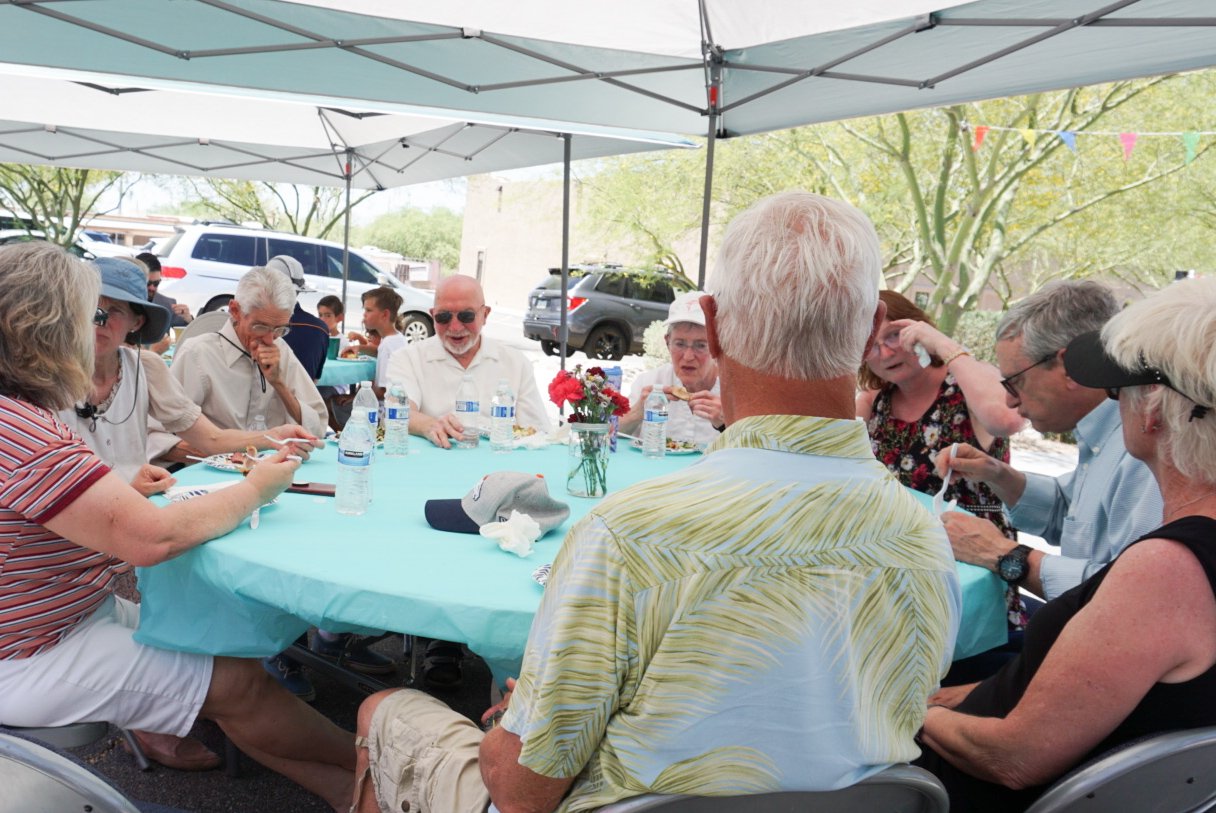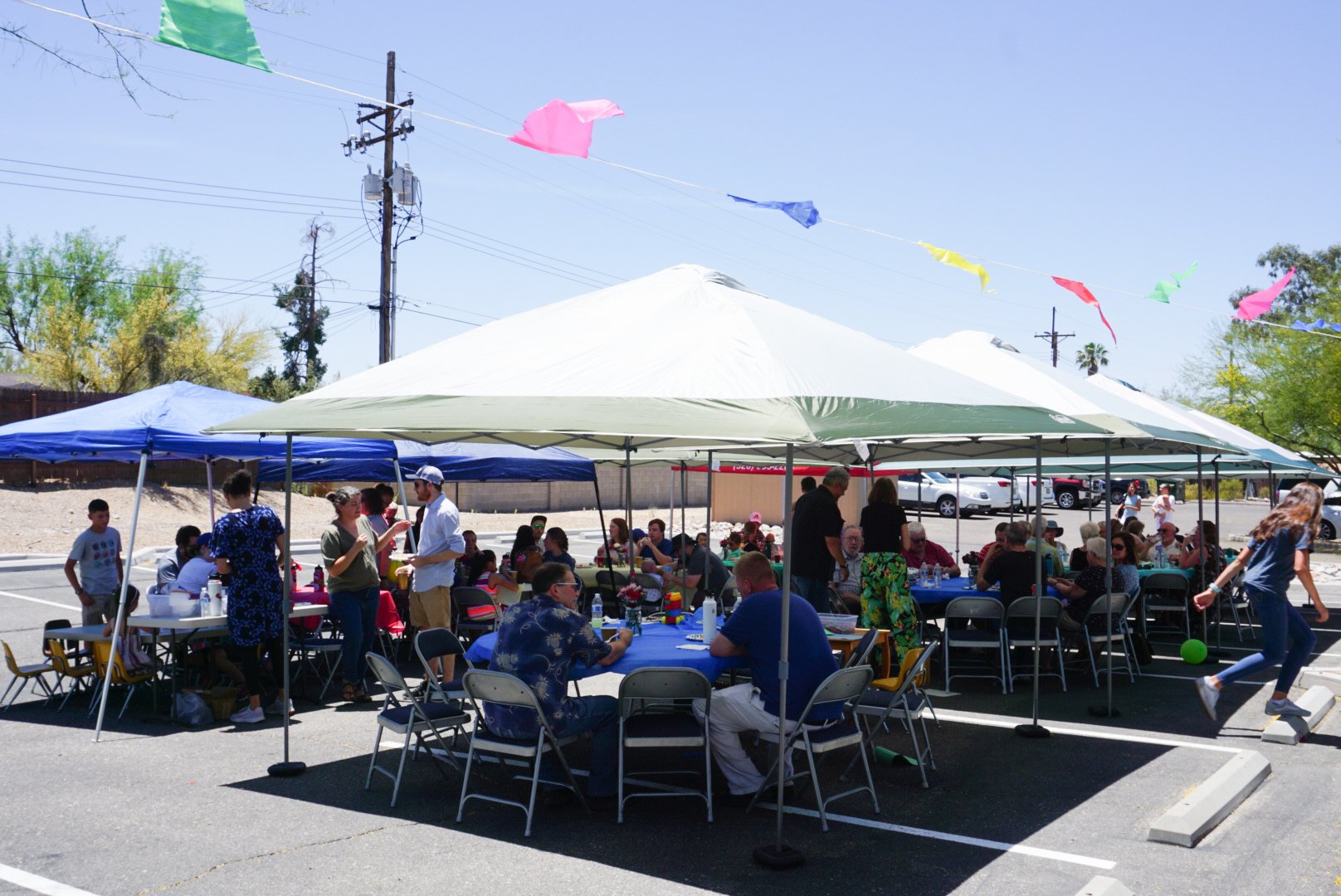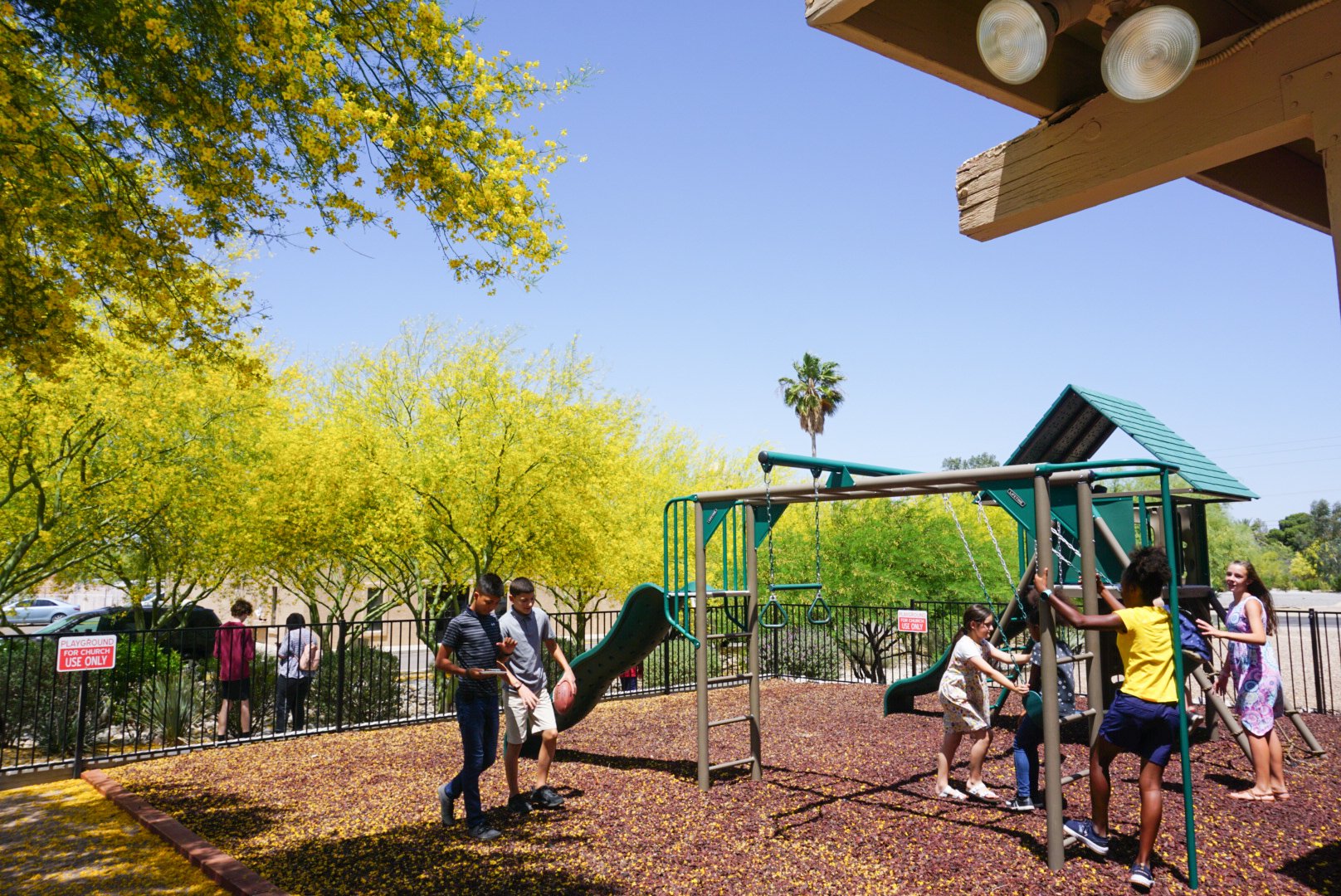We are spending time defining and celebrating the different aspects of our Sunday gathering so that we will grow in seeing how glorious and important Sunday is to God. Lord willing, the fruit being a deeper joy in God and a greater commitment to our gathering. Today, we look at Worship. Below is an outline summary of the sermon for your further study and deeper reflection.
SERIES: The Gathering: Why Sunday Matters
TEXT: John 4:21-24
TITLE: Worshiping God, God’s Way
PREACHER: Derek Overstreet
BIG IDEA: True Worship is Worshiping God, God’s Way
POINTS:
1. The Biblical Fundamentals of Our Worship
2. The Biblical Expressions of Our Worship
SERMON EXCERPTS:
All quotes are taken from the pastor’s notes.
”Romans 12:1 exhorts us to offer our body and soul as a living sacrifice to God as worship. For the Christian, all of life is worship. Today, we look at a narrow expression of Romans 12 worship—the 20-25 of our gathering when we sing together.”
“The woman at the well was a Samaritan. The Samaritans were Israelites who intermarried with non-Israelites. By the time Jesus came on the scene, the Samaritans had their own theological system, including Mt. Gerizim, not Jerusalem, as the place where God was to be worshipped.”
“When Jesus says You worship what you do not know— he is calling the woman and her religion out. She does not worship God in truth because she does not worship Him according to His self-revelation but according to their man-made revelation. It’s not that she was worshipping a false God; she was worshipping the true God falsely.”
“Jesus points the woman to his sacrifice that will transform where and how God’s people will worship Him. Since Jesus is the way, the life, the TRUTH (Hebrews 1:3), his words in verse 24—those who worship him must worship in spirit and truth—become the new order and formula he will create for all Christian worship under the new covenant.”
“To worship God in truth is to worship Him according to who He is and how He has prescribed we worship Him in Scripture. To worship God in truth is to worship Him according to and for His eternal character, sacrificial love, and gospel promises. It’s not that we can only sing God’s Word (Regulative Principle), but God’s Word must be the basis of our singing. Our theology informs, permeates, and fuels our Sunday morning worship. This is why the songs we sing are so important.”
“Simply put, to worship God in Spirit is to worship Him from a heart of faith in Christ. We are God’s people, not because of ethnicity, geography, or outward work. We belong to God because, by His grace, we have an inward faith in Jesus.”
“When we worship in faith, not concerned with pleasing or impressing others, but believing from hearts of gratitude that God is good and the pinnacle of His goodness is providing Jesus as our Savior, no matter where you are, who you are with, or how off tune you sing, God is magnified because you are worshipping him in spirit, from a heart of gratitude and in truth, according to who He is.”
“This isn’t optional. You can’t have one without the other. They go together. To worship only in truth can be hard and cold. To worship God only in Spirit can lead to fleeting and shallow emotionalism. But to worship God with the head and the heart, that is true worship.”
“Is true worship about the heart? Absolutely! From beginning to the end of Scripture it’s clear—above all things, God is concerned with the heart. But don’t fall into the trap of thinking that means what I do with my body when I worship is unimportant and irrelevant. It is very important and relevant.”
“The Bible says much about physical expression when we worship God. What do we mean by physical expression? Expressive worship is using appropriate physical motions that manifest the attitude and reflect the proper response to what we are singing about God.”
“Ultimately, the exhortation in 1 Corinthians 14:40, when we gather things should be done decently and in order, is our guiding principle. Our priority in corporate worship is not our individual expressiveness; it’s encouraging and serving one another in Christ. This is why pastors should teach, encourage, and model God-honoring expressive worship.”
“This shouting isn’t a rock concert—Hey SGC! We’re in the house. Are you ready for this? Connect the content to the shouting. These are shouts of praise fueled by the theology of God that is on fire in the hearts of His people in a way that cannot be contained.”
“Clapping in Scripture is a God-ordained response of appreciation, honor, and exaltation to the Lord for who He is and what He has done for us.”
“The point of Psalm 47 is that God is the King who reigns over all. He has defeated the enemy and delivered His people. So His people clap—Thank you God! How much more on this side of the cross do we have to clap as a worshipful response to the God of our salvation? He is worthy, isn’t He?”
“In the Bible, raised hands are associated with blessing. To bless the Lord is to exalt and celebrate Him. David expresses his hunger and need for the Lord, who is powerful and glorious and whose unfailing love is better than life itself. So he doesn’t just sing; David also raises his hands to express gratitude for who God is and how He loves him.”
“As a desperate child runs to their father with outstretched arms—Help me!—David raises his hands as an expression of need and surrender to God.”
“Again, connect the content with the expression. This is not— Raise your hands in the air like you just don’t care. This is theology that grips the heart so much that it overcomes our personalities and fears and pours forth through physical expression because it is too marvelous to be contained.”
“Bowing down is a posture of humility and submission. It reflects an inward attitude of reverence and respect before the Lord. As the people consider and praise God as the Rock of their salvation, their Holy Creator and sovereign Lord over all things, they bow down in awe and wonder. Isn’t He worthy of our bended knee?”
“Important distinction: No physical expression is worship itself. No expression makes our worship more genuine. No expression makes the individual holier than the next. Someone can raise their hands in exuberance on Sunday and be committing adultery or stealing from the boss on Monday. But when these physical expressions are fueled by theology and flow from a heart of gratitude, adoration, wonder, and awe, they are God-honoring responses to true worship taking place in our hearts.”
ADDITIONAL SCRIPTURE:
Romans 12:1
1 Corinthians 14:40
There are numerous physical expressions in Scripture that God has commanded and commended to us:
Voices
- Sing: Psalm 96:1-2, Psalm 47:6:7
- Shout: Psalm 33:1-3, Psalm 100:1
Hands
- Clapping: Psalm 47:1-2
- Raising Hands: Psalm 63:1-4, Psalm 134:1-3, Psalm 143:6
Legs
- Bow Down: Psalm 95:1-7
QUOTES:
Martin Luther - “A person who gives this [singing] some thought and yet does not regard it as a marvelous creation of God, must be a clodhopper indeed and does not deserve to be called a human being; he should be permitted to hear nothing but the braying of [donkeys] and the grunting of hogs.”
D.A. Carson - “Christian worship is new covenant worship; it is gospel-inspired worship; it is Christ-centered worship; it is cross-focused worship.”
Bob Kauflin - “God wants our worship to be intelligent and informed. He wants to stretch our minds to the limits as we consider the greatness of his being and the wonder of his works….Obviously, intellect can become an end in itself. We can become more impressed with our doctrinal formulations than we are with Jesus. We can end up leading a theologically orthodox but emotionally dead church. God receives no glory from that combination….God intends for us to remember that neither biblical truth nor deep emotion is out of place when we worship God; they’re meant to go together.”
Matt Boswell - “The Scriptures resound with singing. There are over fifty direct commands for us to sing, and singing is mentioned over 400 times in the Bible. Singing doesn’t merely play a one-dimensional function in the life of the church; it plays a multi-faceted, invaluable role as we worship God. We sing as an act of worship. We sing to disciple one another. We sing as a declaration to the world.”
APPLICATION:
Q) Are there any physical expressions of worship God has given in Scripture that I refuse or have never displayed?
Not my personality to raise my hands
Not respectable to shout (shouting in my heart)
What will others think if I bow down? (fear of man)
Expressions are cultural (their not)
Didn’t grow up clapping
What hinders you on Sundays? Fear of man? Personality? Warped sense of being reverent or respectable? Tradition?
The Bible doesn’t command we do every expression every time we worship. But if God has commanded and commended certain physical expressions, and I refuse some because I want to worship God my way, at my comfort level, well, I need to revisit my theology of worship. Because worship is not about me; it’s about Him.
In heaven, one thing we will do is sing. We will see our Savior, and with the angels, we will sing. We will sing loud, free of pride, fear, and ignorance. We will sing with clear minds and genuine hearts that can take in the glory of God unhindered by sin. We will sing with the strength to keep singing forever. It will be glorious! Until then, Be here on Sunday so we can sing together. How God made you will be reflected in your worship. But he gave us all a voice, hands, and legs to worship Him.






















